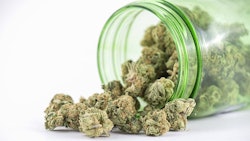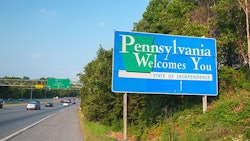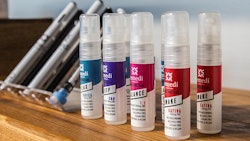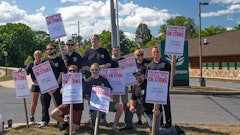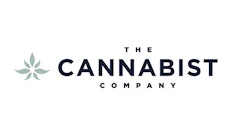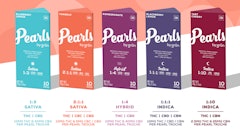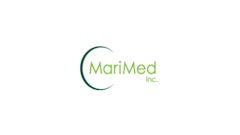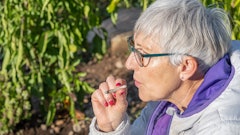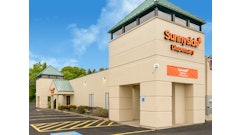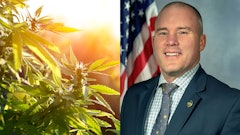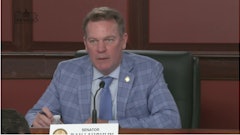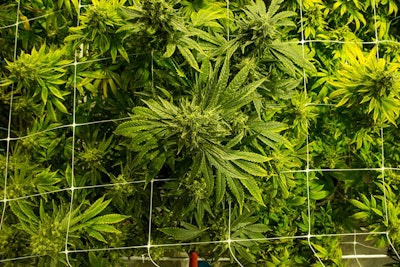
Pennsylvania’s medical cannabis program has faced significant hurdles in its infancy. Since retail sales began in mid-February, the six dispensaries across the state have experienced demand that far outpaces their collective supply, prompting some dispensaries to temporarily close in the early days of this new retail market.
The economic discord was one factor that led members of Gov. Tom Wolf’s Medical Marijuana Advisory Board to recommend the sale of flower in the state.
Minnesota is the only other medical-cannabis state that has an active ban on flower sales. All told, 29 states have legalized medical cannabis.
Shalawn James, a patient advocate appointed to the board by Wolf, says that several subcommittees have been studying the merits of flower sales. In February, board members learned about the effects of flower on patients, and about the particular physiological delivery system of flower as opposed to concentrated oil.
The board has not yet voted on allowing flower sales; once the move is fully approved, it will be sent to the state legislature.
“One of the things we are hearing heavily from the medical marijuana community is that the flower product provides better relief in much lower dose and quantity—and it’s quicker relief,” James says. “As a parent of a kid that has a sickle cell disease, I know the importance of curbing the pain as soon as possible.”
Businesses are also excited about the prospect of flower sales. Charlie Bachtell, CEO of medical marijuana cultivator Cresco Labs and co-founder of Cresco Yeltrah (a cultivation and retail partnership specific to Pennsylvania), says that an underlying tenet of medical marijuana retail management is to cater to the needs and desires of patients.
“First and foremost, it’s great that we would move in that direction in Pennsylvania for the patients,” Bachtell says. “One of the things that we’ve learned in our experience in this industry is that flower is great for a couple different reasons: One is its speed to efficacy. You’ll feel the effects from inhalation of flower faster than you’ll feel any other form.”
So far, more than 21,000 patients have registered for Pennsylvania's medical marijuana program, according to the Philadelphia Inquirer. Of those registrants, more than 2,000 have visited medical marijuana dispensaries in the first month of sales.
For all involved in the budding program, the learning process is active, especially at the policymaking level.
“It’s been an open debate. Clearly there’s going to be some education and some training that will need to go on within that arena,” James says. “Our law specifically states that the flower form of medical marijuana can only be dispensed for vaporization. That is specifically written into the law, and that is not something the board can change.”
In tandem with patient demand for flower is the idea that regulated sales will further erode the influence of Pennsylvania’s black market and prevent patients from going there to obtain the products they desire.
“We really, as a state, want to curtail that,” James says. “We are listening to what the consumer wants and working [however] we can within the law.
“There’s a heavy demand for the product, and so the board is really listening to that from a number of different aspects. We don’t want people going to the black market, because it is dangerous.”
But in the current regulated market, patients are confronting a common issue: high prices. Flower sales would allow dispensaries to offer a product that has a lower price point per milligram.
“We see this in every new medical market that comes online, especially east of the Mississippi: A little bit of reaction of consumers going, ‘Hey, this is more expensive than I expected it to be.’” Manufactured products, of course, command more instruments, more manpower and more time.
In the days following the start of sales in Pennsylvania, a half gram of Lime Skunk liquid resin was $70 at Cresco Yeltrah, according to the Pittsburgh Tribune. A gram of Bio Jesus wax was $75.
Flower provides an opportunity for dispensaries to lower the overall medical sales price range. “We like to provide a variety of options to patients,” Bachtell says. “From our experience in other markets, flower sales could be … around 50 percent of all sales in traditional medical markets that are up and running.”
The Medical Marijuana Advisory Board meets monthly. Dr. Rachel Levine, the acting secretary of the Pennsylvania’s Department of Health, will review the recommendations next month. A decision is expected thereafter.
Top image courtesy of Cresco Labs










